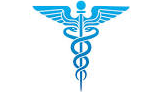Flow Experience
 -15%
portes grátis
-15%
portes grátis
Flow Experience
Empirical Research and Applications
Wright, Jon; Harmat, Laszlo; Sadlo, Gaynor; Orsted Andersen, Frans; Ullen, Fredrik
Springer International Publishing AG
06/2018
392
Mole
Inglês
9783319803937
15 a 20 dias
629












